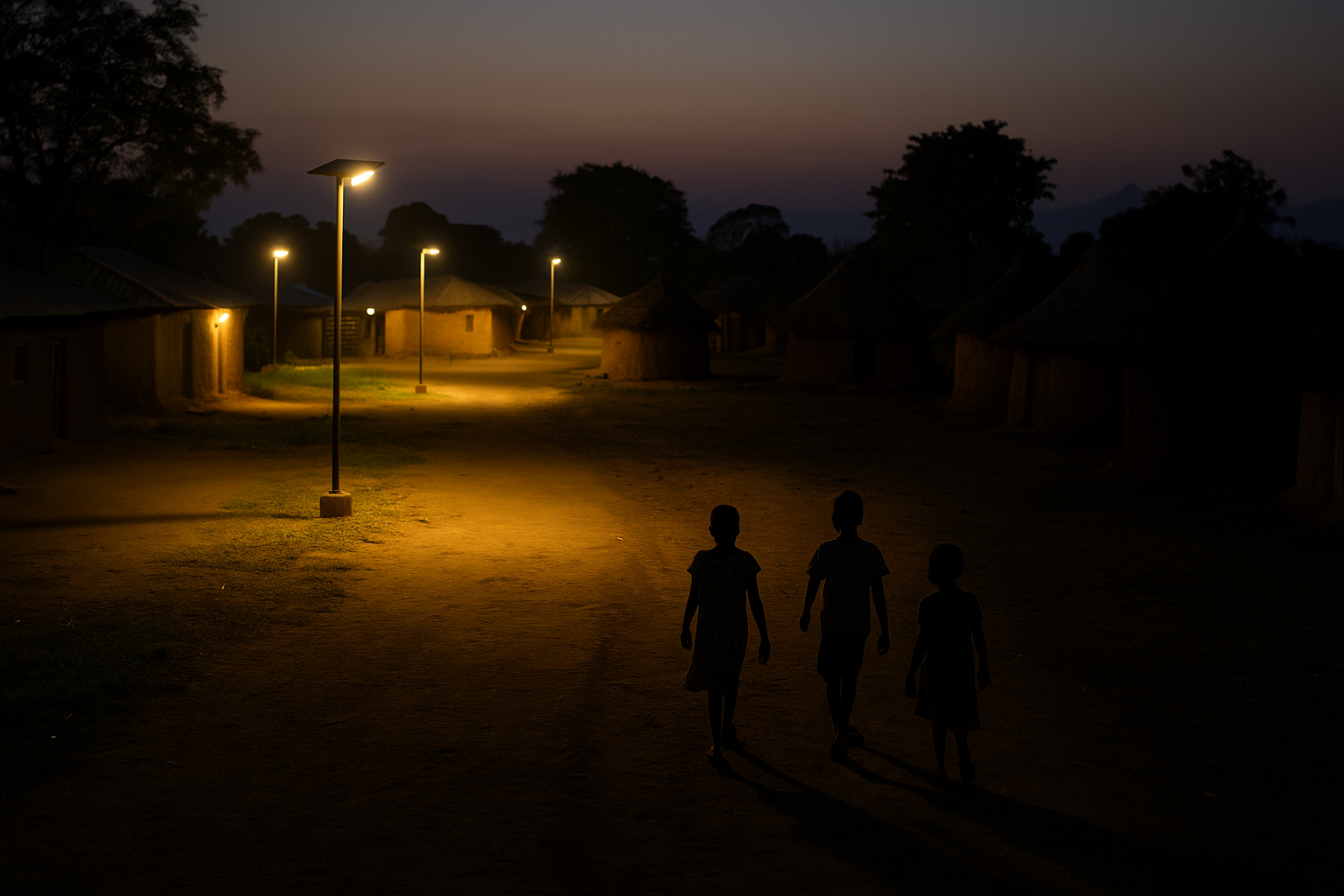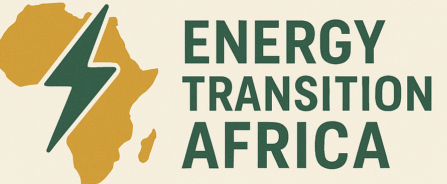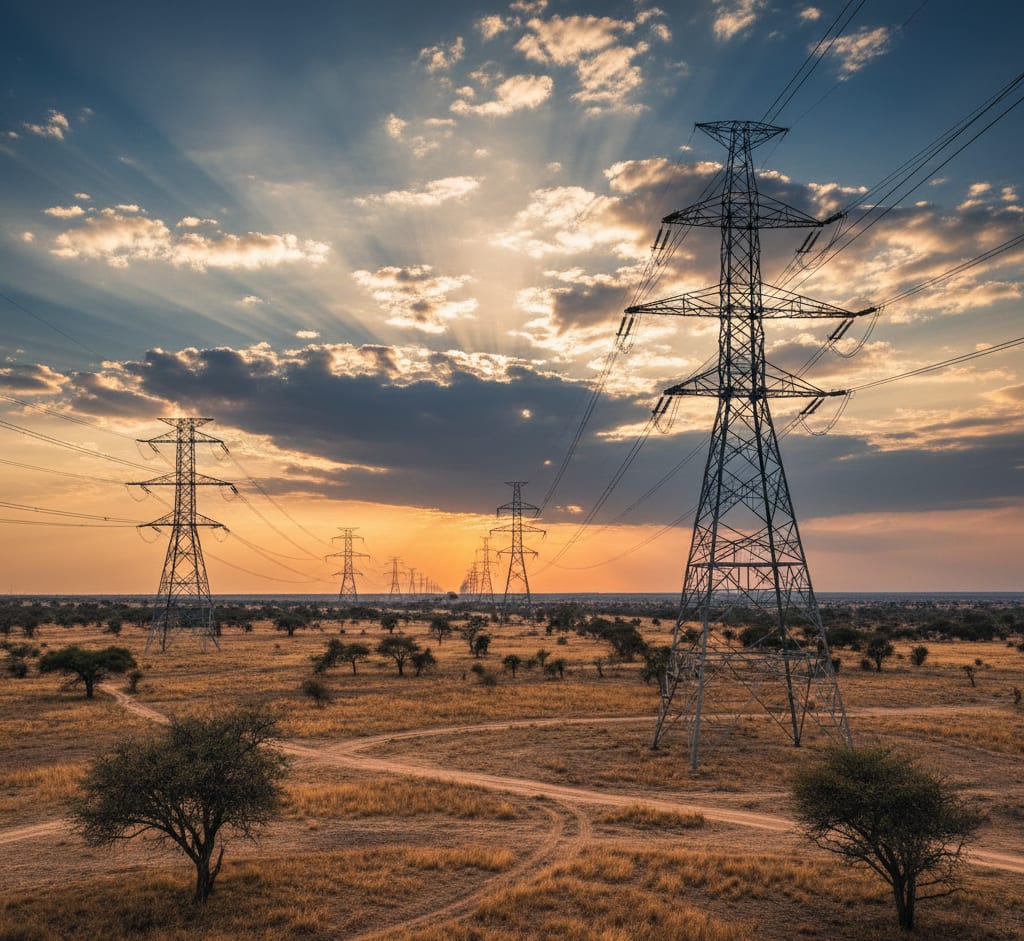Just Transition in Africa: Beyond Rhetoric, Towards Real Communities
By Vincent Egoro |

Few phrases have travelled as fast through climate diplomacy as “just transition.” From COP plenaries to ministerial communiqués, it rolls easily off tongues. The idea is simple but profound: as the world phases out fossil fuels, workers, communities, and vulnerable groups should not be left behind.
But in Africa, where over 600 million people still lack electricity and millions more depend directly on fossil-fuel-linked jobs and revenues, the phrase risks becoming a hollow slogan. Too often, “just transition” is presented in speeches but absent in budgets; it animates panel discussions but evaporates in communities.
The question facing Africa is urgent: will just transition remain rhetoric, or will it become real for the people who matter most?
Communities at the frontline: coal towns, oil deltas, and gas fields
In South Africa’s coal belt, the closure of the Komati power station was meant to symbolise a bold new chapter. Backed by nearly half a billion dollars, the plan promised retraining, small business support, and solar repowering. Yet three years on, local unemployment remains stubbornly high, benefits are uneven, and resentment lingers.
In Nigeria’s Niger Delta, decades of oil extraction left environmental devastation, poverty, and a trail of broken promises. Communities there hear international calls for a fossil phase-out with scepticism. To them, “transition” sounds like another wave of abandonment: first by oil companies, and then by governments eager to move on without cleaning up the mess.
In Mozambique and Tanzania, gas projects are billed as “development lifelines” by politicians but feared by nearby villages, who anticipate displacement with little compensation. Across the continent, from Ghana’s offshore oil to Namibia’s new finds, communities see a pattern: they carry the burdens of extraction but not the benefits of transition.
“No community, no transition. If it isn’t just for people, it isn’t just at all.”
Megawatts don’t mean justice
Global debates often celebrate the megawatts of coal retired or the gigawatts of solar added. But megawatts are not justice. They do not feed families, replace jobs, or fix broken clinics.
For workers in South Africa’s coal sector, the only transition that matters is whether they have new jobs when the mines close. For families in Nigeria’s oil regions, justice means clean water, restored lands, and alternative livelihoods. For women in rural Kenya, it is access to reliable power for clean cooking and small businesses.
If the metric of success remains purely technical—installed capacity, emissions avoided—then justice is an afterthought. A truly just transition must count jobs created, SMMEs supported, households electrified, women empowered, and communities lifted.
Gender and social justice at the core
In Africa, energy poverty is gendered. Women walk miles to gather firewood, breathe toxic smoke from kerosene lamps, and spend hours each week on unpaid energy labour. Yet when transition policies are drafted, women are rarely at the table.
A just transition must recognise this imbalance. It should mean:
- Gender audits of all national energy transition plans.
- Dedicated financing windows for women-led renewable enterprises.
- Training and inclusion of women in green jobs and leadership.
Otherwise, the transition will reproduce the same inequalities in new industries. Justice without gender is not justice at all.
Energy access as the justice frontier
For 600 million Africans living without electricity, the just transition must start with connection. To tell these households that Africa must accelerate fossil fuel phase-out without providing alternatives is not justice.
Universal energy access is the single most important justice metric. Mini-grids, decentralised solar, clean cooking solutions, and affordable tariffs should not be afterthoughts; they should be the heart of the transition. After all, how can a transition be “just” if nearly half the continent remains in the dark?
“No phase-out deal is just if communities remain in the dark.”
Finance that reaches people
At global summits, billions are pledged for Africa’s energy transition. Yet communities rarely feel the flow. Finance is routed through ministries, intermediaries, or donor pipelines. By the time it trickles down, little remains for local projects.
This is why civil society demands finance that reaches people and not just governments. Community cooperatives should be able to access grants for solar mini-grids. Women’s groups should receive concessional finance for clean cooking businesses. Farmers’ associations should be able to electrify irrigation systems.
And critically, finance must be structured in local currency, not just dollars and euros. Otherwise, FX risk inflates tariffs and keeps clean power out of reach. The principle is simple: finance justice is energy justice.
Policy and governance shifts
Moving beyond rhetoric requires systemic change:
- National compacts with communities. Every coal closure, oil wind-down, or gas transition should be paired with a community development deal that guarantees jobs, services, and local procurement.
- Regional coordination. The African Union and blocs like SADC and ECOWAS should harmonise just transition frameworks to prevent a patchwork of weak standards.
- Transparency. Contracts, finance flows, and community benefit schemes must be disclosed. Without accountability, “just transition” risks becoming another slogan for elites.
From rhetoric to reality: Africa’s message to COP30
As COP30 looms, Africa’s negotiators must sharpen the continent’s message:
- Finance for communities, not only states. Direct access for cooperatives, women’s groups, and municipalities.
- Job and SMME pipelines. Measurable employment and enterprise targets tied to energy transition plans.
- Energy access as a justice metric. Every finance deal should include connection targets.
- Gender inclusion. Dedicated quotas and funding for women-led initiatives.
Africa’s leaders must insist: “We will not phase out on promises. We will only phase out on justice.”
The bottom line
For too long, Africa’s role in global energy debates has been framed in tonnes of emissions avoided or barrels of oil replaced. But justice cannot be measured in megawatts. It must be felt in jobs, lights, livelihoods, and dignity.
The risk is clear: if “just transition” remains rhetoric, communities will resist, resent, and reject it. But if it delivers real benefits, power in homes, income in pockets, and equity in decision-making, then Africa’s transition will not only be just, but also unstoppable.
“Megawatts don’t mean justice. Justice is jobs, lights, and lives.”
Expert Analysis, Directly to You
Join our community of experts and decision-makers. Stay informed with our weekly deep dives into Africa's energy future.
Weekly briefing. Expert insights.
No spam. No generic fluff.
About the author
Vincent EgoroContributor at Energy Transition Africa, focusing on the future of energy across the continent.



